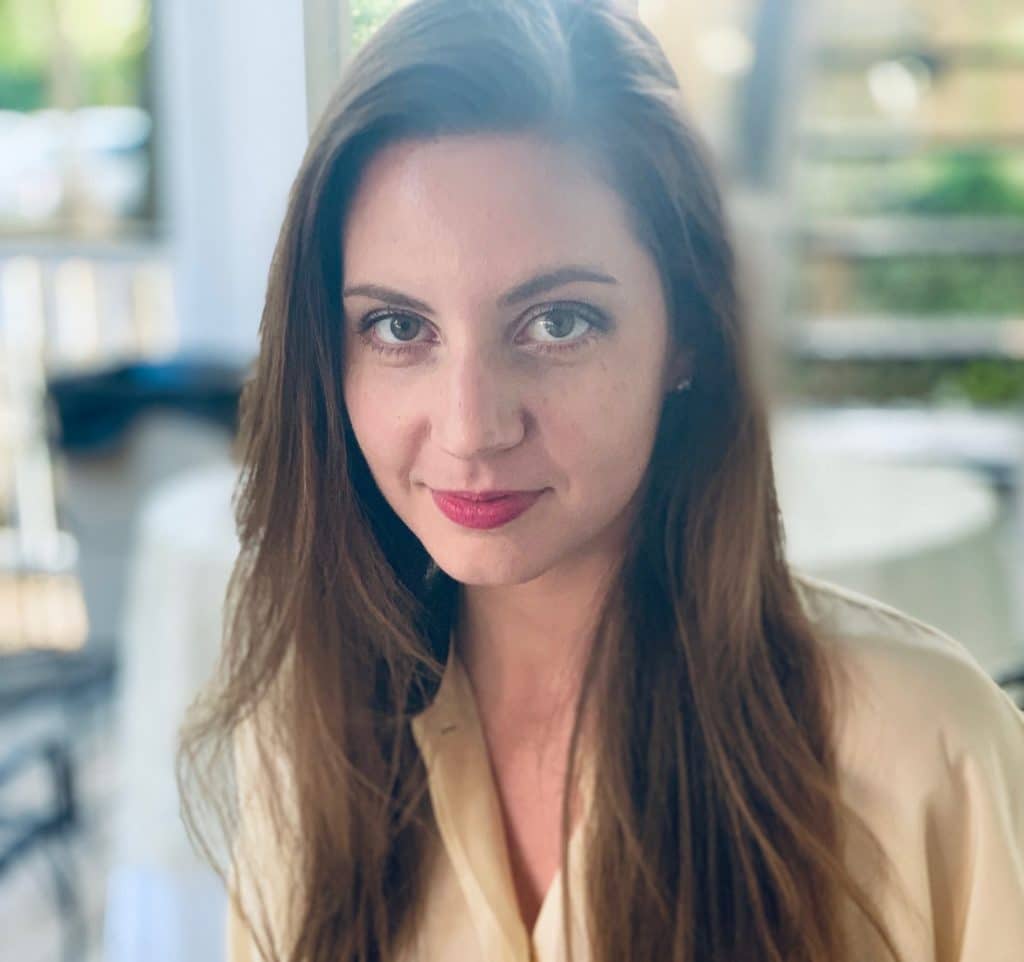
by Olivia Davis
In January 2017, I was thrilled to learn that I was a semifinalist for a Fulbright ETA in Athens, Greece. A few weeks later, I was a little bit less thrilled to learn that there was one final step in the application: an interview with my potential host institution, the Hellenic American Educational Foundation (HAEF).
Not every Fulbright award requires this additional step, and so it’s a good idea to check Fulbright’s website so that you know what to expect. However, if you do get called to a semi-finalist interview, here are a few tips to help you prepare for it!
1. Get the logistics down.
Check the time zones (and then check again). These interviews will probably be held online because you will be speaking with residents of the country you are applying to. This means that you have to be careful with time zone conversions! Take into all factors, such as daylight savings time, AM and PM, and different time zones that you will be in. I know someone who recently put an 8 PM Eastern Time event into his Google Calender while in Central Time. When he came into the Eastern Time zone, the event’s time did not convert, and he ended up being an hour late!
Do a test run. Be sure that you know your log-in info and are familiar with Skype, Zoom, or whatever software is being used for the interview. Do a test run with a friend that replicates the interview. If you are using Skype, make sure that you are active so that you can receive calls.
Choose your space wisely. Be sure that the space you are in helps–instead of harms–your interview performance. Of course, make sure that it’s quiet. My interview was very early–6:45 AM–and so I could not book a room in the library, but my apartment was quiet enough at that hour. In addition, use the background to your advantage if possible. I like to paint, and I put some of my paintings behind me to give some color to the background. They ended up doubling as a nice ice-breaker at the beginning of the interview, which was very helpful.
Be sure you know what language the interview is conducted in. This should go without saying, but you don’t want to be surprised on the spot that your interview is in a language other than English. Make sure that you are prepared! (For the Greece ETA, the interview is in English!)
2. Know as much as possible about the position you’re interviewing for.
Know the different positions offered. There are often a variety of positions offered under the same grant. For example, while all current ETAs to Greece work in HAEF, they have very different day-to-day duties in elementary, middle, or high schools, counselors’ offices, or the school library. Other countries have positions available that involve a variety of schools, cities, grades, and types of work. Because of this, there are many different experiences (professional and personal) that ETAs to the same country might have. Be sure that you can speak to the different types of positions the grant offers as well as which ones you are most interested in.
Have a working knowledge of the educational system. Do a bit of reading on the educational system in the country that you are applying to. Understand how those grade levels are grouped (e.g. “elementary, middle, high”) and what kinds of English language instruction those students receive. If you are working with university students, acquire a basic understanding of the university system (how majors are picked, etc.). For the Greece ETA, it was helpful to have some knowledge about the IB (International Baccalaureate) program and Forensics Clubs.
3. Emphasize your teaching ability.
Be able to speak to specific examples of your past successes in teaching. As a Fulbright ETA, the core of your grant is in the name: English teaching. A taste for adventure and a love for travel are important for a Fulbright ETA, but these things pale in comparison to your job description: you are a teacher. Think about the types of positions offered with the ETA grant you’re applying for, and think about the specific moments that prepared you to succeed as an ETA. If you have traditional classroom experience, be ready to highlight creative problem solving on the fly, an innovative lesson plan, or how you encouraged a difficult student. If you don’t have traditional classroom experience (I did not), think about times when you tutored, gave private lessons (I emphasized my experience as a piano teacher!), or helped an ESL student with a paper–anything that specifically supports the idea that you will be successful as a teacher is fair game. Also, be able to share what you find hardest and what you enjoy the most about teaching.
Be able to speak to specific examples of your future success as an ETA. Come up with a few lesson plans or fun activities for your students (bonus points if they involve sharing your American culture in a unique way) and share them with enthusiasm. A lot of people tend to suggest that they will start book clubs and the like with their students, but I have found that the most practical and successful ideas tend to be within the ready-made structures. You might not need to start a book club–but you might be able to bring an innovative lesson plan on Harry Potter that gets everyone more interested in reading in English.
4. Express your love of their country.
Show a real interest in the country today. It’s important to not only be interested in a country’s history, but also where it stands today (I’m speaking as someone who knew a lot more about Ancient than Modern Greece!). Be mindful of the current cultural climate, political concerns, etc. For a Fulbright ETA, you don’t have to be an encyclopedia; just follow a few news stories that interest you. Even searching your country within Google News a couple of times a week can give you a helpful start.
Know where you would like to travel within the country. You don’t have to be overly specific here, but having a few ideal trips within your selected country shows enthusiasm and interest in receiving the Fulbright grant beyond the professional level.
5. Have questions ready.
As someone who doesn’t like interviews (at all!), the last thing I want to do is extend a conversation by asking some of my own questions! However, this is an important way to show interest and engagement. Your questions can be of any nature: your daily tasks, literature selections, or your interviewer’s favorite travel destinations (although do try to have at least one professional question in there before you go to fun stuff!).
In particular, as we are in the midst of the pandemic, it would be a good idea to have some questions ready regarding the current precautions being taken, such as if schools are physically open as well as what your grant period might look like if schools close.
In Conclusion…
As you prepare, remember to keep a healthy perspective–this is only one component of a much larger application. Be yourself, share what you are passionate about, and don’t press yourself to be perfect. The committee wants to meet you–not who you think they want to meet!–and so give them a chance to do exactly that. Congratulations on getting selected for an interview and good luck!
Want insider strategies for your Fulbright ETA application? Purchase the Fulbright Applicant Mastermind workshop by ProFellow Founder and Fulbright Award Winner, Dr. Vicki Johnson.

Olivia Davis has a BA in English from the University of Mississippi and was a 2017-2018 Fulbright ETA in Athens, Greece. She writes at Looking Upward and works full-time at a Christian ministry in Atlanta. When she’s not writing, she is probably playing the piano, drawing, or eating Greek food.
© ProFellow, LLC 2021, all rights reserved.